|
8/18/2016 She Loves HimPoetry by Javiette Grant, See the Triumph Guest Blogger
Battered at 17, he was her sweetest dream turned sour. Her family used to sit her on a throne, but a baby makes you grown so she’s all alone. She wrote me a letter and said let me explain. She said before you judge me, feel my pain. I’m trapped in a box of confusion, where the sky has a limit, dreams are deferred, and thoughts are diminished; but I played the cards that were dealt to me, he is the only one who stayed next to me. She loves and she hates him. She loves him because he allows her to be who she wants to be for free, but what is the price for pain? She hates him because he will take her smile and sell it for less than its worth. She hates because he found her innocence and misplaced it in a land where only weeds grow. But she loves him, and she hates him. And if you can’t see the correlation than you are blind because love and hate go hand in hand like hot and cold, like weddings and funerals, like graduations and baby showers, we are growing up too soon. But she loves him. And she hates him. She hates him because he can look her in her eyes and lie, turn around, beat her, and watch her cry, knowing that he doesn’t deserve her but he loves her. Or does he? She knows that she’ll forgive him in the morning and over breakfast she’ll eat her expectations, swallow her regret, and stare disappointment in the face, Good morning. She hates him because he is a weakness that will never really make sense. She hates him because even when she’s sleeping he invades her mind like a bad dream that she can’t wake up from. They probably shouldn’t be together but sometimes she wonders if a love affair could last forever. So when you see the girl walking down the street with the faded smile, don’t judge her, reach out and hug her, or hold her or give her a look that says “you are stronger than you know” because even dandelions forget that they are beautiful. Javiette Grant is a 23-year-old from Charlotte, NC. She graduated in 2013 from The University of North Carolina at Greensboro, where she received her Bachelor of Arts degree in Communication Studies with a minor in Sociology. She currently is pursuing her Master's degree at her alma mater in Couple and Family Counseling. 8/16/2016 No One is Entitled to Your Body But YouBy Kelsey Doucette, See the Triumph Guest Blogger When you think of the phrase ‘marital rape’ what sorts of words come to your mind? Violating? Terrifying? Betrayal? Trapped? These were the words that came to my own mind when I imagined if the person I decided to marry, trust with my heart, and spend my life with would force me to have unwanted sex. How could your own spouse be the person that shatters you into a million pieces and uproot any sense of trust you have in them? How could someone believe they have the right to my own body? People who are raped by their spouses often have a rapid fire of questions in their mind and an intense feeling of shock. Up until 1993, rape within a marriage was the exception in any rape case. If the rape occurred between a husband and wife, the case was essentially thrown out. That means that marital rape has only been considered illegal outside of a marriage for about 23 years. However, 13 states still make exceptions for marital rape cases (“These 13 states...”, 2015). These states have vague requirements for what constitutes marital rape, have less severe consequences, and/or make it difficult for the spouse to prove rape occurred. The belief that a man has the right to his wife’s body upon marriage comes from an underlying, archaic thread woven through our society headed by patriarchal ideals. As far back as 1736, an English jurist, Sir Matthew Hale, made this statement: "But the husband cannot be guilty of a rape committed by himself upon his lawful wife, for by their mutual matrimonial consent and contract the wife hath given herself up in this kind unto her husband which she cannot retract” (Withonef, 2015). This shows just how far back the misunderstood issue of marital rape reaches. So, you would think after about 280 years everyone would be on the same page with marital rape and how completely illegal it is based on LAW. Think again. In 2015, allegations arose from Donald Trump’s ex-wife Ivana that he had raped her during their marriage. Mr. Trump’s attorney proceeded to release a statement reading, “You cannot rape your spouse…and there’s very clear case law” (“Meet the marital rape...”, 2015). Earlier, in 2008, an activist named Phyllis Schlafly, who was highly involved in Republican political affairs such as delegating for 8 national conventions, said “I think that when you get married you have consented to sex…That’s what marriage is all about, I don’t know if maybe these girls missed sex ed” (“Meet the marital rape”, 2015). Clearly there are people still today who do not understand that marital rape is, indeed, rape. No one should be able to tell you what to do with your body, when you want to have sex and who you should have sex with except for YOU. If you take anything away from this, remember that you are in control of your own body, and no man or woman--even if you married them--should take that away from you. Works Cited
 Kelsey Doucette is a graduate student pursuing a Master’s degree in Couple and Family Counseling at the University of North Carolina at Greensboro. 8/13/2016 It Was Not OkayBy S. Wild, See the Triumph Guest Blogger
I was in an emotionally abusive relationship several years ago. It still shocks me to think that I had that experience. At the time of the relationship, I did not understand that his behavior was abusive. I made excuses for him, such as he was drunk when he said or did that, I said something that set him off, he grew up experiencing sibling abuse, etc. I got to the point where I had been convinced that I was not good enough and that if I simply gave him what he wanted, I would be a good girlfriend and he could be happy. Eventually, I believed something was fundamentally wrong with me. I was not aware I was in an abusive situation until the relationship ended. My best friend told me my boyfriend’s behavior was abusive and suddenly everything clicked. It seemed so obvious after she told me and, yet, when the relationship was ongoing I was completely unaware I was experiencing emotional abuse. After all, the relationship had started off so well and only became bad because I was a bad girlfriend. Or so I was told. After my realization I found a quote regarding abusive relationships that helped me make sense of why I stayed with my boyfriend for as long as I had. “If you put a frog in a pot of boiling water it will immediately jump out. If you put a frog in a pot of cold water and slowly turn up the temperature to boiling the frog will stay in the water until it dies.” This quote was reassuring to find because I knew others out there experienced something similar to me and I started to believe that it was not my fault for staying in such a terrible relationship. Though I knew many people would empathize with or support me I hesitated to share my newfound knowledge of my relationship with my parents and other family members. I was afraid they would not believe me. It has been almost four years since my abusive relationship ended, and I have yet to disclose any details to my parents and most members of my family have no idea that anything out of the ordinary took place. Because I am fearful of how my family will react if I tell them about my abuse I decided to interview some of the males in my family to understand their general assumptions and thoughts regarding domestic violence. I was curious if their answers would convince me to disclose my experiences to them or not. Among my few family members I interviewed there was a general assumption that most victims are individuals with low self-esteem who come from an abusive past and lack a support system from family or friends, though they acknowledge that domestic violence can happen to anyone. All my family members stated believing domestic violence is likely more common than they understand it to be. They believed perpetrators of domestic violence are not specific to a race, background, or socioeconomic status, and they recognized verbal abuse as part of domestic violence. This information was uplifting to learn. I feel more confident that if I disclose my past to my family, they would believe and support me. What was more concerning to learn was that none of my family members were able to indicate warning signs a victim can use to identify abuse. As I stated before, I was unable to identify my relationship as abusive. So, several highly educated individuals could not indicate red flags. This demonstrates the importance of implementing domestic violence education in a way that can reach many and preferably at younger ages. If I had been educated on warning signs and types of abuse, I would not have spent two years of my life in a relationship that tore me down, layer by layer. I would have known it was not okay for him to convince me that I’m not good enough and listen to how he wished I were different. I would have known it was not okay for him to call me names in private and in public. It was not okay for him to put me down constantly and insult my intelligence. It was not okay for him to push me, scream in my face, and call me a bitch in front of all our friends. It was not okay for him to unexpectedly show up to places I was, belligerently drunk, demanding to be let in and becoming aggressive when I, or others, refused. It was not okay for him to throw chairs across the room in my direction screaming at the top of his lungs to eventually be escorted from the premises by the police. None of it was okay, and I wish I would have known that. The positive from my experience is that I now know what abuse is and I will never let myself be in that situation again. However, being in an abusive relationship should not be the only means of education. If we teach the warning signs, unhealthy dating behaviors, and types of abuse earlier in life, we could prevent women and men from ever experiencing an abusive relationship. 8/11/2016 Trusting AgainBy An Anonymous Guest Blogger
“Don’t make me pay for what he did…” Nearly 4 years passed before beginning another committed, intimate relationship since my previous abusive relationship ended. Given my long history with my ex, a large part of my recovery from the abuse involved me getting to know myself in an intimate way without the “burden” of a relationship. As I reflect even more now as I write this piece, I am reminded of how free I felt after leaving the abusive relationship. Even during those difficult healing moments, I was always possessed by such an overwhelming relief that the abuse was finally over. For a while after my previous relationship ended, I was psychologically broken in my perception of relationships in that I equated an intimate relationship to pain and suffering. I can say that I was not opposed to casually dating and “keeping things light,” but I was opposed to entering another committed relationship again because my trusting nature had been nearly broken and fear of being hurt again paralyzed my heart. That was until an unexpected someone came along nearly 4 years later and changed all of that… Approximately 6 months passed between meeting my current partner and making our relationship official. During those months and even now, almost 2 years into our relationship, my partner continues to treat me with a type of love, support, and understanding I have never experienced. For a long time, even at times now to be honest, it scares me because my abuser was also loving, supportive and understanding…in the beginning. The abuse started nearly 2 years into our 8-year relationship. Despite the overwhelming amount of patience my current partner has displayed, he has said on several occasions, “I’m not him…don’t make me pay for what he did.” Sometimes I struggle not to compare my current partner to my previous abuser. Sometimes fear does get in the way of our ability to move forward in our relationship because I’m afraid that eventually, things will go south no doubt, because that’s just how relationships work, right? Wrong! What I had to learn and am still learning is that healthy relationships do have their challenges as well. Given my history of trauma, we were bound to encounter difficulties as it relates to trust issues, on my part especially. However, with a loving, supporting, and patient partner, a corrective emotional experience can take place and over time, I can say that gradually, I’ve learned to rebuild that trust again. I can speak for myself and for others that have experienced abusive relationships that the healing process is intentional. I still continue to seek counseling now. Even though things are going great in my relationship, I know that keeping in touch with my feelings as they come up is crucial not only to my own mental health, but to the success of my relationship. I know firsthand that trusting again is much easier said than done. Even now, it is difficult sometimes to move to the next step in my own relationship when pondering commitments such as marriage and having children. However, experiencing new people and new things have a way of changing one’s mind about the world and the people in it. So, to those reading this post – there is hope out there. Believe me, I was very cynical for a while, for good reasons I must say! Protecting your heart is important and sometimes necessary to prevent pain and suffering. I would say to be intentional on your healing process because it is critical to your health on an individual and relational level. Don’t let your heart grow cold and don’t give up on love because if you do, your abuser has won. By An Anonymous Guest Blogger
Everyone has their breaking point and when mine came, I was at the point in my previous relationship with my abuser that I did not think things could get any worse. I had been strangled for the final time and so emotionally torn down that I seriously considered ending my own life just to escape the turmoil I had experienced for so long. At the time of our break-up, which almost involved me calling the police for the first time in our relationship in order to get him to leave my apartment for good, I believed my abuser “took the break-up well,” almost as if he truly understood that it was no longer a healthy relationship for either of us to be in. Given our nearly 8-year history in the relationship, I knew that truly disconnecting from him would be a highly difficult task for both of us; however, I also knew that a “clean separation” involving little to no communication would be necessary for us both to move on with our lives. My abuser, however, had other plans in mind…plans to make my life even more of a living hell now that we were no longer together. In short, the role that technology in the events that took place AFTER my relationship ended led to an even more dire set of events that I never could have imagined. In the months after our break-up, my abuser began a calculated plan of stalking behaviors via Facebook, which involved myself and my roommate at the time. His creation of fake profiles of other men on Facebook combined with my vulnerability at the time led to my abuser learning my whereabouts in another state, followed by in-person stalking. His stalking behavior ultimately led up to the final physical assault after the protective/restraining order was served. This was the first and only time I ever received medical attention as a result of a physically violent altercation and the last time I have seen or spoken to my abuser. As I’ve learned more about abusive relationships in the nearly 5 years since that final attack, I agree 100% with what the research says - when it comes to abusive relationships, the most dangerous time is when the victim ends the relationship and leaves. That was certainly the case with me. Thus, it makes sense why victims can be so reluctant to leave and/or delay the process of leaving because it could literally mean risking their lives! To this very day, I am extremely weary of my activity online. I don’t currently maintain any social media accounts and am constantly skeptical of others who may take pictures of me and post them online. While I don’t believe I am not in any immediate danger as it relates to my abuser given the time that has passed with no issues, other professionals have advised that I continue to minimize and/or discontinue my social media presence online. I never thought things could get worse AFTER leaving my abuser. Leaving was supposed to be the hardest part, but as I reflect, life was even harder there for a while AFTER leaving. Fortunately, the help and support that victims need to survive the aftermath of the relationship is available. To victims and survivors of intimate partner violence: Understand that the process of ending the relationship itself is NOT the end. In fact, it may just be the beginning to a whole new set of circumstances that will be difficult to face. However, at the end of the day, your life is worth saving despite some of sacrifices you may have to make to continue keeping yourself safe. DON’T EVER FORGET – YOU ARE WORTH IT! |
Archives
April 2024
CategoriesAll About Intimate Partner Violence About Intimate Partner Violence Advocacy Ambassadors Children Churches College Campuses Cultural Issues Domestic Violence Awareness Month Financial Recovery How To Help A Friend Human Rights Human-rights Immigrants International Media Overcoming Past Abuse Overcoming-past-abuse Parenting Prevention Resources For Survivors Safe Relationships Following Abuse Schools Selfcare Self-care Sexual Assault Sexuality Social Justice Social-justice Stigma Supporting Survivors Survivor Quotes Survivor-quotes Survivor Stories Teen Dating Violence Trafficking Transformative-approaches |
Search by typing & pressing enter


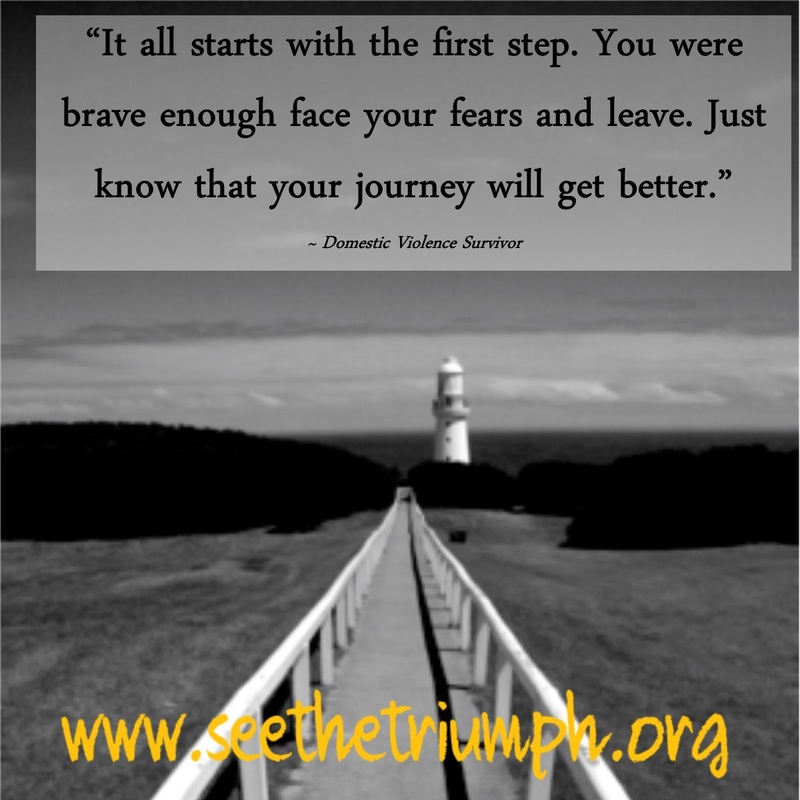
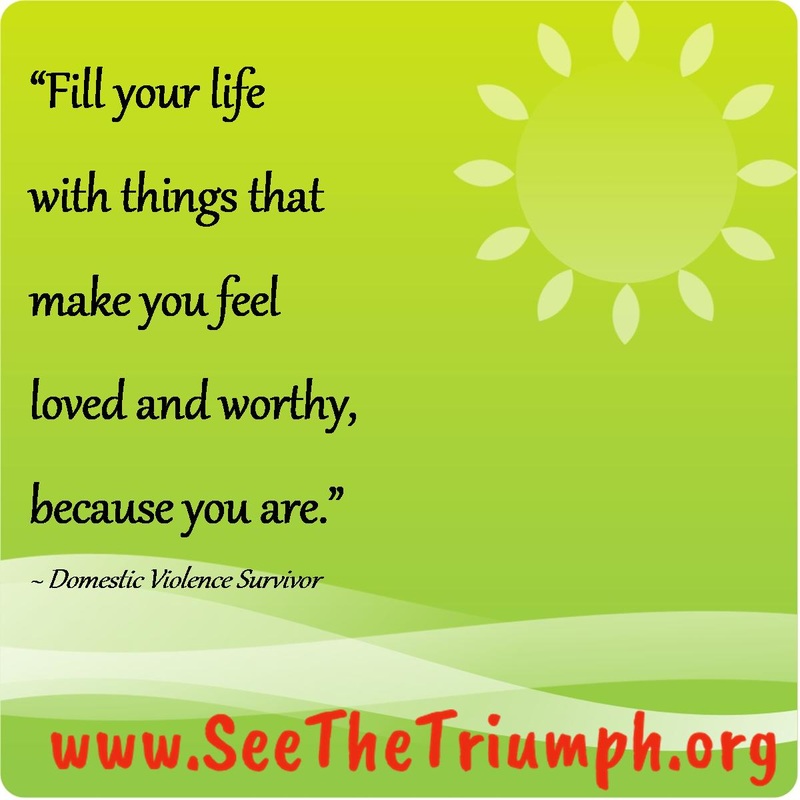
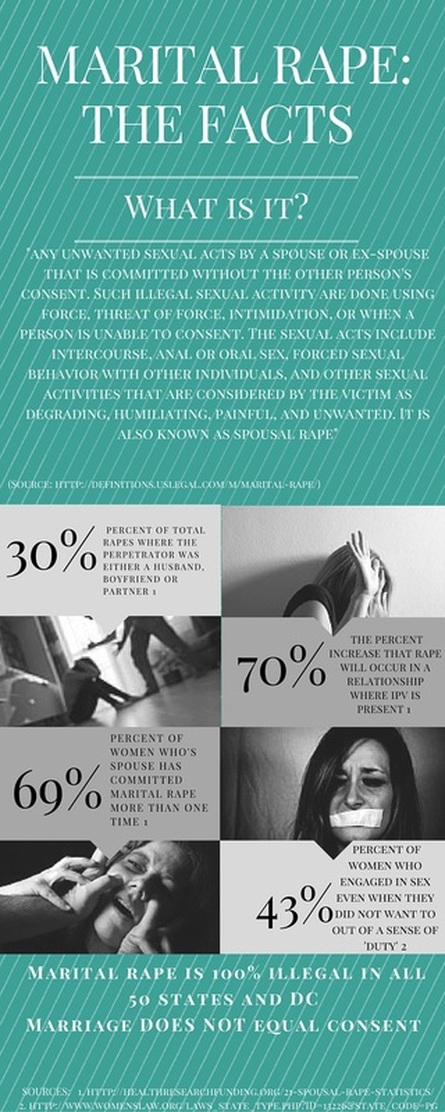
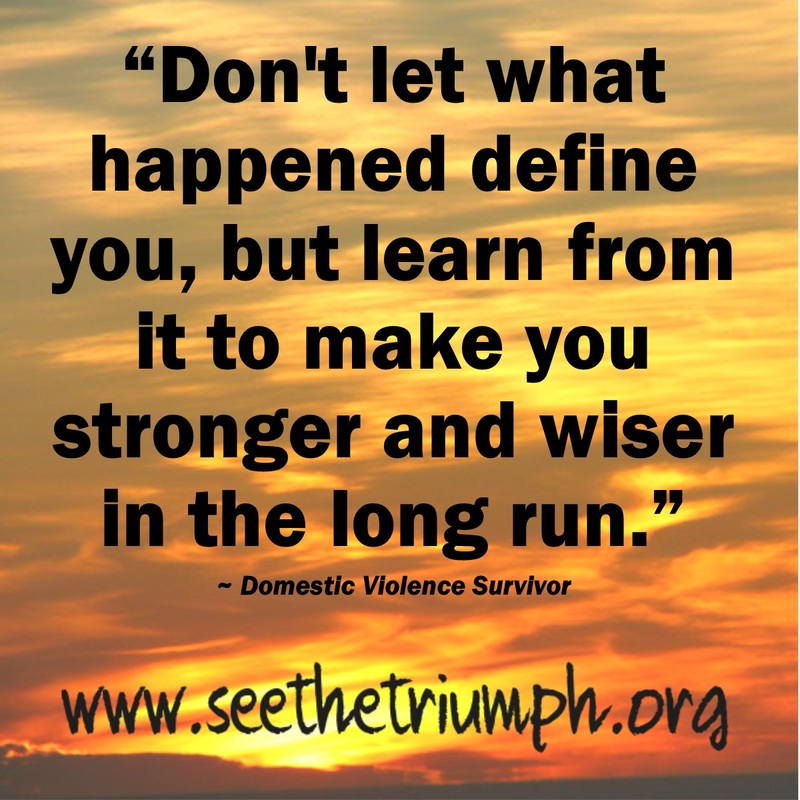
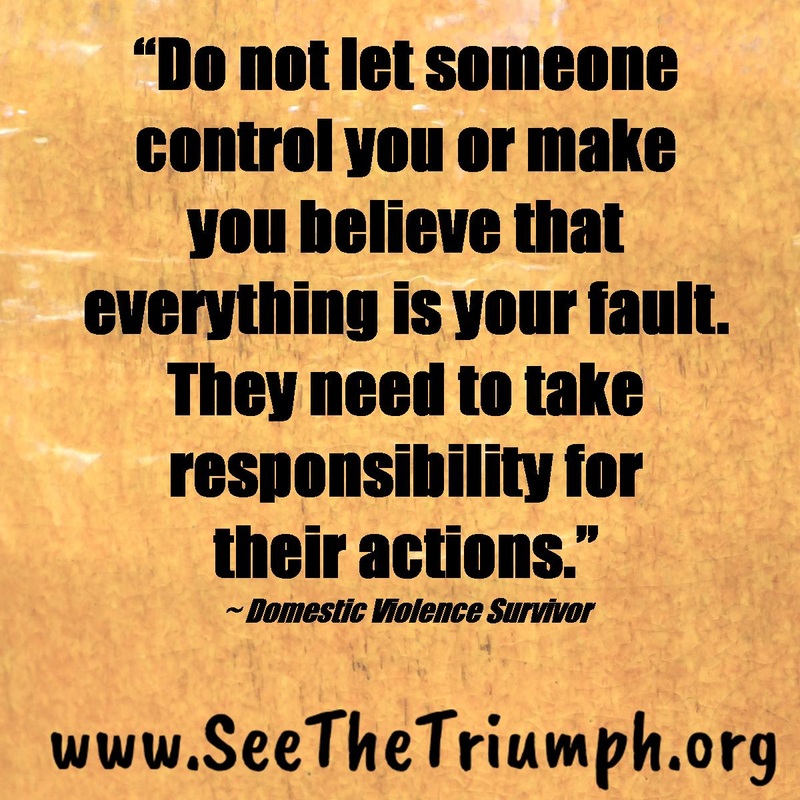
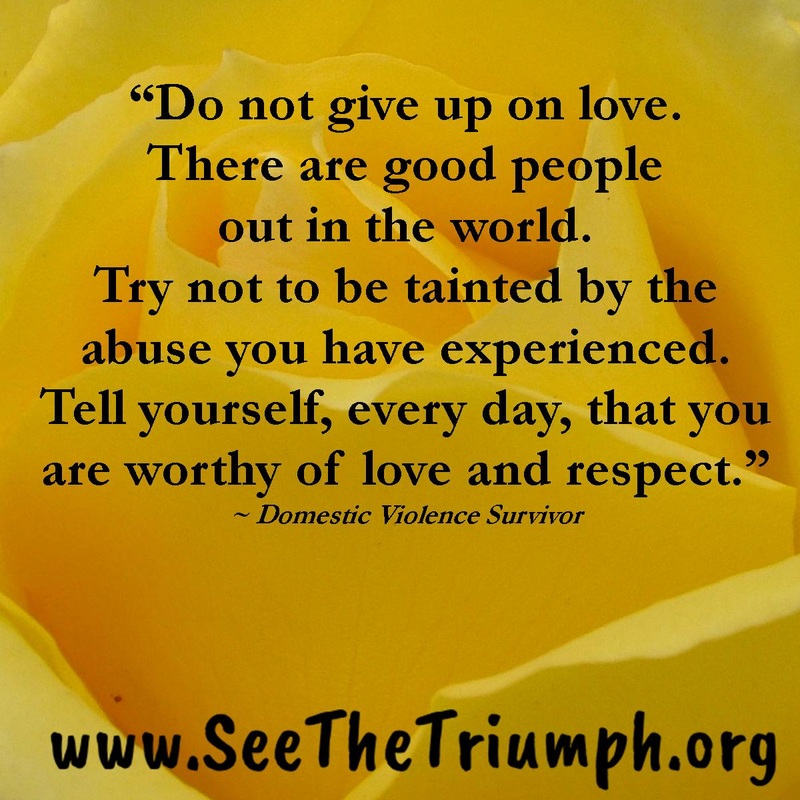
 RSS Feed
RSS Feed